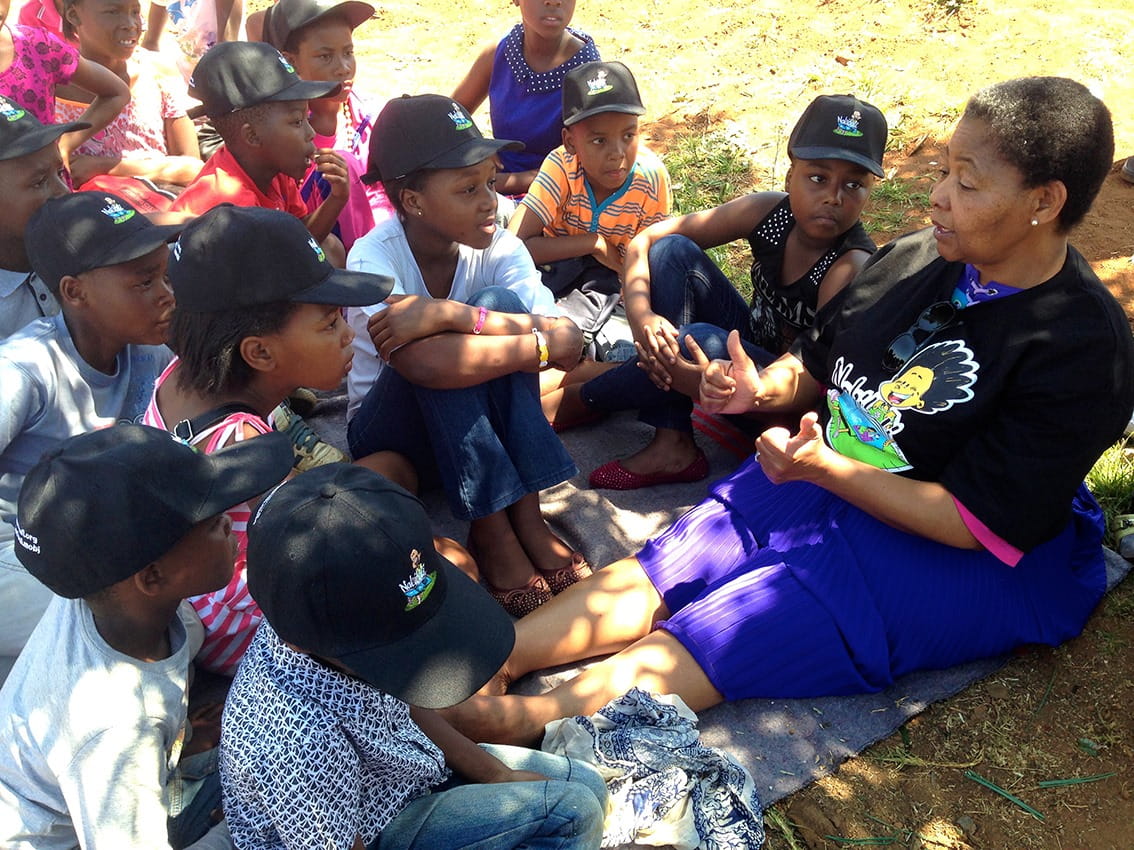Nal’ibali is on a mission to change education across South Africa through its reading-for-enjoyment initiative, which promotes reading and writing in mother tongue languages. To effectively monitor program activities and children reached across the country, Nal’ibali needed to integrate multiple data platforms.

Did you know that South Africa's education system ranks as one of the worst in the world?
The results of the Progress in International Reading Literacy Study 2016 showed that 78% of Grade 4 learners in South Africa cannot read for meaning, which is the basis of learning. Children who aren’t good readers at a primary school level are on a trajectory of limited educational progress. Nal’ibali aims to improve academic success by promoting reading and writing in mother tongue languages, which is important in a country that has has 11 official languages.
Nal'ibali uses language and cultural relevance to develop literacy in a nationwide campaign.
Nal’ibali (isiXhosa for 'here's the story') is a national reading-for-enjoyment initiative to use the power of stories, either oral or written and in many different languages, to inspire children to want to read and write. Since this campaign began in 2012, it has had a tremendous impact across South Africa through: 11,132 reading clubs (5220 of which are currently active), 159,191 participants, and 1,419,035 stories distributed.
With multiple systems and programs, there was no single-view of children's literacy progress.
To manage its nationwide literacy campaign, Nal'ibali used a collection of technology platforms for data collection, reporting, and program management. Nal'ibali implemented Salesforce for enhanced data management. However, Nal'ibali still needed to integrate its OpenDataKit (ODK) data collection tools and online learning management system with Salesforce to track the entire program journey and progress of a child beneficiary in one, single-view.
OpenFn integrates online and offline data sources so that Nal'ibali can monitor children's progress across all literacy programs.
To integrate siloed data sources and introduce automated SMS to boost reader engagement, Nal’ibali implemented OpenFn to:
- sync all data collection tools across programs and activities for single-view monitoring,
- integrate Salesforce with Everlytic SMS to support direct communication with beneficiaries, and
- enable live monitoring of its reach through a live, integrated map visualization that tracks the locations of reading clubs
These OpenFn-powered integrations save the Nal’ibali team several hours every month on data management processes and activity reporting. The connected data systems also ensure Nal'ibali M&E staff can quickly and easily monitor reading clubs across South Africa, and analyze which campaigns have been the most effective.
As Nal’ibali continues to scale its programs and reach, it released a new online learning site for its readers earlier this year. Check it out the new site at www.nalibali.mobi! To learn more about Nal'ibali's impact and mission, also check out their main website.
The photo above was originally posted on the Nal'ibali Facebook page. It features children doing role play in order to practice conversation.